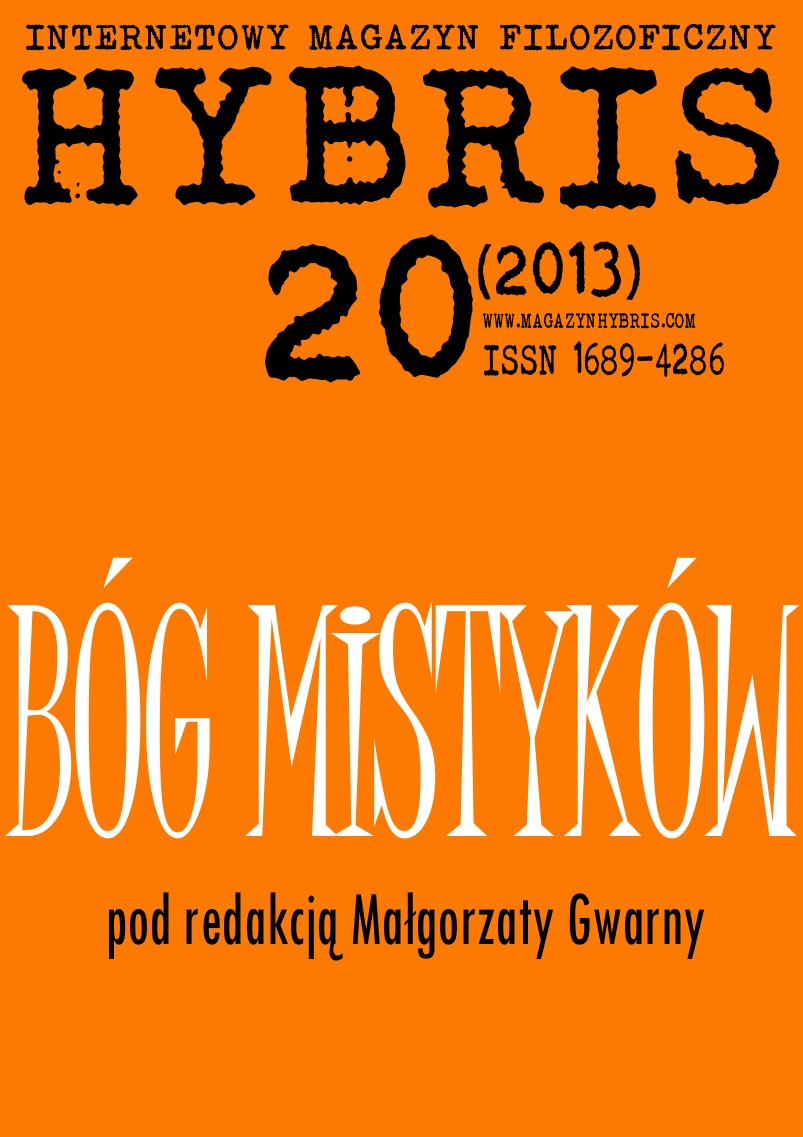Mystical experience in “The aleph” and “The writing of the God” by Jorge Luis Borges
DOI:
https://doi.org/10.18778/1689-4286.20.11Abstract
In my paper I undertake an analysis of chosen short stories of Jorge Luis Borges in which the problem of mysticism occupies an important place. I claim that Borges, whose works are known for covering philosophical issues of most fundamental importance, is a writer who describes the impossibility of reaching a mystical experience in the modern world. As far as philosophical background of Borges is concerned there exists a well-spread opinion that Borges, who readily confessed his admiration for Berkeley and Hume, was an idealist himself. My point is that even though the Berkeleyan epistemology influenced Borges, there is a fundamental difference between those thinkers which consists of the fact that in the philosophy of Berkeley there is a place for God. As a result it can be claimed that the world as an object of God's experience has a stable existence. There is no place for such a privileged being neither in the ontology nor epistemology proposed by Borges. The world as described by him can be called a fiction because there is no privileged subject whose experience would not be accidental and private. For that reason the description of mystical experience is always a failure when it refers to modern times. I demonstrate it at length by the analysis of the short story entitled The Aleph, while taking into consideration other texts as well.
Downloads
Published
How to Cite
Issue
Section
License

This work is licensed under a Creative Commons Attribution-NonCommercial-NoDerivatives 4.0 International License.






